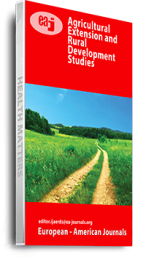The case study was conducted in three selected kebeles of Digalu Tijo District, Arsi Zone, Oromia Regional State of Ethiopia with the objectives of investigating the difference of access of new wheat packages of men and women, identifying the barriers to women to adopt new wheat varieties. Purposive sampling method was used to select 60 individual respondents, 6 key informants and 3 different focus groups for discussion session. Data was collected using interview guide, focus group discussion guide and key informant checklist. The data were analyzed using statistical package for social science (SPSS) software version 20 and categorization of themes was done to analyze the qualitative data. Transcription, coding and organizing were carried out to make the data meaningful and prepare report. Quantitative methods (frequency and percentages) were employed to analyze quantitative data. The result of the study shows, in wheat production, men have more exposure to events like field days, trainings and other community meetings although both women and men were wheat growers. This implies women have low access to information on wheat production than their male counter parts. Not only this, but as result indicated, the highest percentage share in decision to adopt new wheat packages and primary contact for receiving packages are for men 61.7% and 78.3% respectively. The study revealed that all family members benefited from new wheat packages. There were serious challenges like disease outbreak, input cost, timely input supply and input shortages and lack of information access. These challenges reduced yield and income of the farmers and affected all family and community members even though women and children were highly vulnerable to the effect of the production barriers. The study also identified that no one was negatively affected with the introduction of new wheat technology packages. All respondents confirmed that they were benefited from new wheat technology packages.
Keywords: Technology, Wheat Production, household head, packages, women headed household

